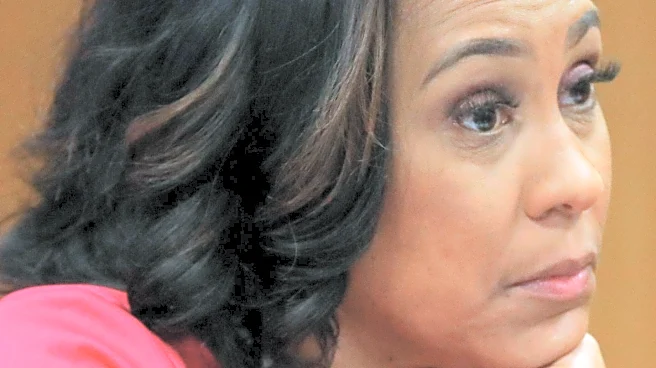What's Happening?
Tallulah Willis, daughter of Demi Moore and Bruce Willis, has publicly shared her journey towards self-acceptance after facing years of bullying related to her appearance. In a heartfelt Instagram post, Tallulah discussed the criticism she received for her distinctive chin, a feature she inherited from her father, Bruce Willis. She expressed how this feature, once a source of self-hate due to public scrutiny, has become a cherished aspect of her identity. Tallulah highlighted the emotional impact of the bullying she endured, particularly from adults who contributed to her feelings of self-loathing. She also criticized a publication for misinterpreting her sentiments in an article headline, emphasizing the challenges of engaging publicly while maintaining authenticity.
Why It's Important?
Tallulah Willis' candid discussion about her struggles with self-image and bullying underscores the broader societal issues surrounding body image and mental health. Her story highlights the damaging effects of public criticism, especially on young individuals, and the importance of fostering environments that promote self-acceptance and mental well-being. By sharing her experiences, Tallulah contributes to the ongoing conversation about mental health awareness and the need for supportive communities. Her message resonates with many who face similar challenges, encouraging them to embrace their unique traits and reject societal pressures to conform.
What's Next?
Tallulah Willis continues to advocate for mental health awareness, using her platform to inspire others to embrace their individuality and overcome self-hate. Her ongoing engagement with her followers suggests she will remain a vocal supporter of mental health initiatives, potentially collaborating with organizations to further these causes. As she navigates public life, Tallulah may also influence media narratives around celebrity and body image, encouraging more responsible and empathetic reporting.
Beyond the Headlines
Tallulah's experience sheds light on the ethical responsibilities of media outlets in reporting on personal stories, particularly those involving mental health. Her critique of sensationalized headlines calls for a more nuanced approach to celebrity coverage, one that respects the complexities of individual experiences. This incident may prompt discussions about the role of media in shaping public perceptions and the need for greater sensitivity in addressing personal and mental health topics.












